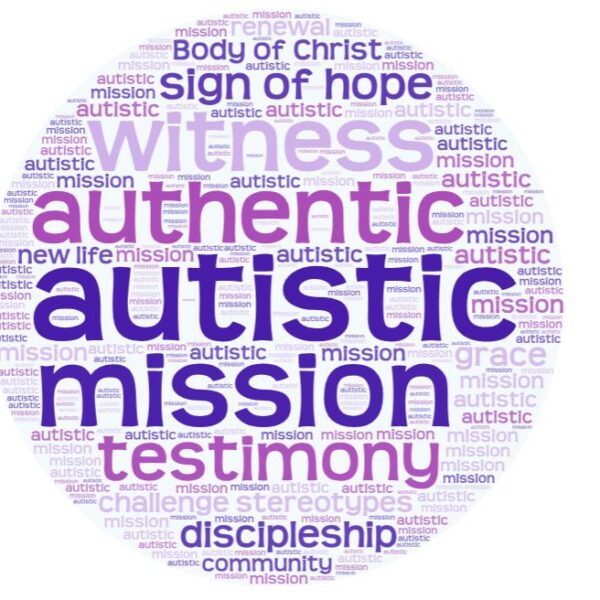Neurologically Sustainable Discipleship
The Lenten resolutions previously posted here center around understanding and honoring our physical, neurological needs – and recognizing that ignoring and pushing through these needs is not only detrimental to our mental and physical health, but also to our relationships to others, and our relationship with God. The human body is designed to shut down processes of social engagement and higher thinking when in survival mode, and survival mode gets triggered when our sensory, cognitive and emotional processing is overwhelmed. If Lent is a season for identifying what impedes our relationship with God, then it is appropriate for neurodivergent Christians to seek ways to live sustainably within our neurological means, and to recognize the spiritual cost of habitually exceeding our limits. Lenten “sacrifice” for us may mean giving up trying to push through or stay silent about our needs for the sake of not making waves.
When we care for our sensory needs and treat ourselves with compassion rather than pushing ourselves beyond our capacities, we not only maintain our own health, but we set an example of compassion for others to follow. This runs counter to many slogans and messages dominating popular culture. How many times, for example, do we hear some variation on “no pain, no gain”, or the theme that growth only happens when we leave our comfort zones? This might be true in athletic and military training, but for autistic people, pain is a signal we are obligated to heed rather than ignore. Pushing past our limits leads to meltdown, burnout, and sometimes, literal injury. With many neurodivergent people also experiencing joint hypermobility, migraine headaches and heat sensitivity, to name just a few, pushing through pain is an actual risk and liability. It is just as important to learn how to explain our limits with grace and humility as it is to be active, and to know how to plan ahead so that we can give our best to whatever we expect to do.
Autism Consecrated is designed to be a living example of how autistic people can sustainably engage in ministry and discipleship [which is to say, neurologically sustainable for our autistic needs]. We integrate the accommodations and flexibility we need into all that we do, taking into account the ways we comfortably communicate and receive and respond to information. For instance, our auditory processing gets easily overwhelmed with phone and video calls, so we communicate exclusively through email and text. Seeing words in type and having unpressured time to reflect helps us effectively respond to questions and comments we receive. Large gatherings overwhelm our sensory processing, so we limit our outreach to one person at a time. It is a natural outflow of our respective vocations as a priest-hermit and Lay Carmelite to offer our time in prayer for specific intentions brought to us, and in general, for better understanding and belonging of autistic people in the Church; in this, we also pace ourselves according to our energy levels and processing loads, simultaneously finding sensory refuge in the spaces we have devoted to prayer.
(Read more about how this apostolate is influenced by the Carmelite charism here.)
Going further, we have intentionally designed Autism Consecrated to operate with as few resources as possible. We are 100% volunteer, and we rely on word of mouth and the Holy Spirit rather than investing our energy and money in marketing and promotions. We are not about numbers. We don’t get anywhere near as much attention as larger, incorporated ministries do, but that leaves us more energy to be fully present to those who reach out to us, and to maintain our commitment to intercessory prayer.
Finally, we strive to promote belonging for autistic people of all ages, not just children. There are thousands of autistic teens and adults who are spiritually hungry and need accommodations, but the majority of resources out there are geared toward autistic children and are rooted more in behavior management than spiritual development. We want autistic teens and adults to know they too are seen, heard, valued, and that their spiritual needs are of equal importance.
Being able to offer God’s love to even one spiritually hungry person, and being in a position to pray for autism’s belonging in the Body of Christ, is more than sufficient to fulfill our mission day after day. We pray our example may show autistic people of all ages that neurodivergent discipleship is very possible.



